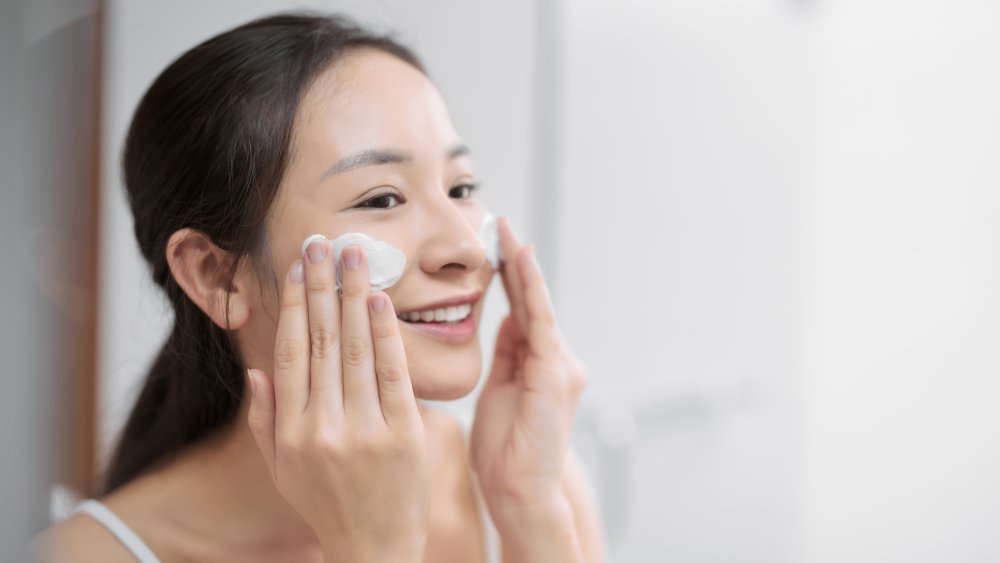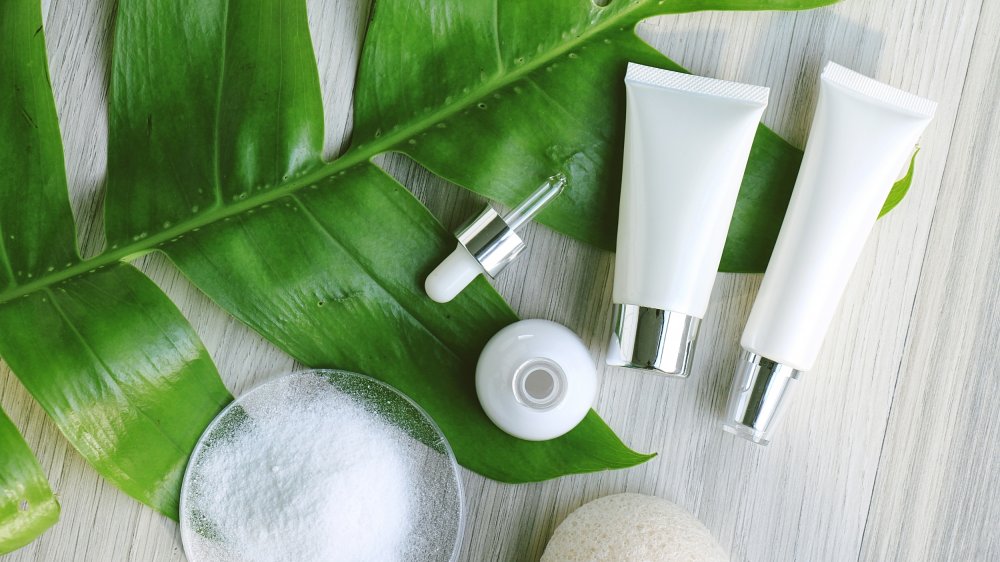The Difference Between Oil-Based Cleanser And Water-Based Cleanser
Thanks to rise of the double cleansing method, inspired by K-beauty routines, choosing your cleanser just got a whole lot more complicated. Not only do some dermatologists now recommend you cleanse twice each time you wash your face, rather than once, but they also recommend using two different cleansers to do so —one oil-based cleanser, and one water-based cleanser. It's important to understand the difference between the two and, more importantly, determine which products are right for your skin.
Oil-based cleansers are recommended as the first step of double cleansing, or for those with sensitive, dry skin. "The theory behind oil cleansers is that they're thought to remove bad excess oil because they have similar chemical properties as skin oil, which allow them to interact," Arielle Nagler, MD, a dermatologist at NYU Langone Medical Center, told Health. "This is in contrast to washing with water, which separates from oil." Oil-based cleansers are not recommended for people with oily skin.
If you have oily skin, water-based cleansers are better
Water-based cleansers, which we think of as foaming washes, on the other hand, clean skin by "rinsing away particles from the outermost layer of skin" and use a surfactant, Lily Talakoub, M.D., a board-certified dermatologist told Sunday Edit. "Water-soluble particles, such as dirt and pollution, emulsify in the lather of the surfactant and rinse off the skin," Talakoub explained, adding, "This, however, also rinses away the natural oils, so water-based cleansers are better for oily or acne prone skin types."
For those using to integrate both into their routine, Talakoub recommends starting with the oil-based cleanser, followed by the water-based cleanser. As Ellinor Quay Coyne, a dermatologist based in Washington, D.C., explained to Vox, "The oil-based cleanser in the double cleanse method is a great way to remove sebum (overproduced in acne) and makeup and sunscreen at the end of the day," and "You can then penetrate the pores more deeply with the water-based cleanser."

